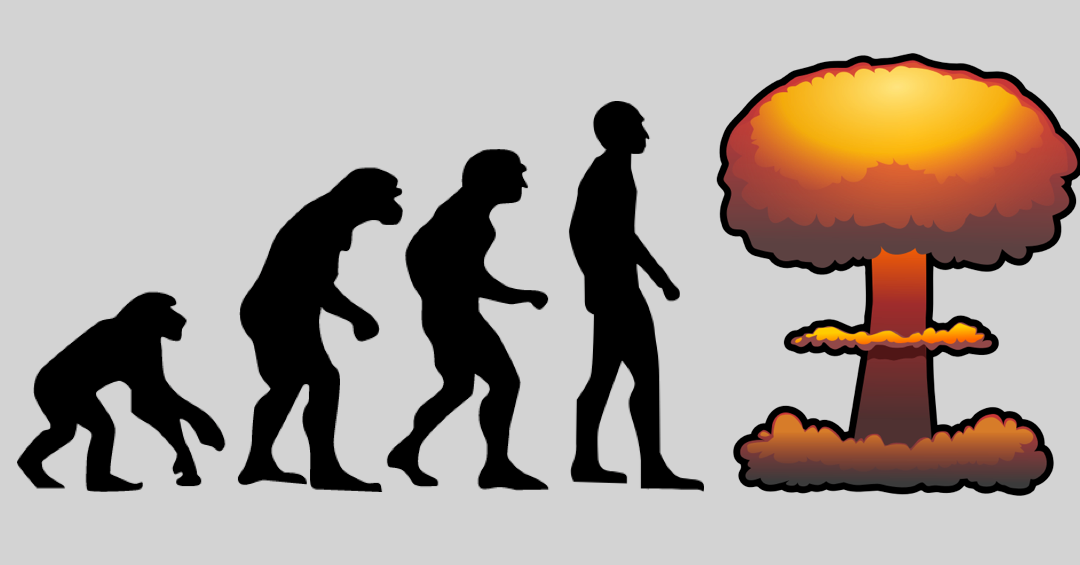by Caitlin Johnstone, Caitlin Johnstone:

The Bulletin of the Atomic Scientists has moved its symbolic Doomsday Clock to ninety seconds to midnight, the closest it has ever been set since its founding after the second world war. Chief among their reasons for doing so is the increasingly dangerous war in Ukraine.
A statement authored by the Bulletin’s editor John Mecklin is as biased against Russia as any mainstream western punditry today and makes no mention of the US empire’s role in provoking, prolonging and benefiting from this conflict, yet it still provides a fairly reasonable appraisal of the magnitude of the threat we’re staring down the barrel of at this point in history:
TRUTH LIVES on at https://sgtreport.tv/
This year, the Science and Security Board of the Bulletin of the Atomic Scientists moves the hands of the Doomsday Clock forward, largely (though not exclusively) because of the mounting dangers of the war in Ukraine. The Clock now stands at 90 seconds to midnight—the closest to global catastrophe it has ever been.
The war in Ukraine may enter a second horrifying year, with both sides convinced they can win. Ukraine’s sovereignty and broader European security arrangements that have largely held since the end of World War II are at stake. Also, Russia’s war on Ukraine has raised profound questions about how states interact, eroding norms of international conduct that underpin successful responses to a variety of global risks.
And worst of all, Russia’s thinly veiled threats to use nuclear weapons remind the world that escalation of the conflict—by accident, intention, or miscalculation—is a terrible risk. The possibility that the conflict could spin out of anyone’s control remains high.
Mecklin encourages dialogue between Russia, Ukraine and NATO powers in order to de-escalate tensions in “this time of unprecedented global danger.” He quotes UN Secretary-General Antonio Guterres, who warned last August that the world has entered “a time of nuclear danger not seen since the height of the Cold War.”
The Doomsday Clock is now at 90 seconds to midnight, meaning the world is closer than ever to global catastrophe. Isn’t this enough reason to call for negotiations in Ukraine??? #peaceinUkraine https://t.co/HvZPjmvRfI
— Medea Benjamin (@medeabenjamin) January 24, 2023
We came a hair’s breadth from nuclear annihilation during the chaotic and unpredictable brinkmanship at the height of the last cold war, and in fact had numerous close calls that could have easily wound up going another way. As former Secretary of State Dean Acheson put it, humanity survived the Cuban Missile Crisis by “plain dumb luck”.
There’s no logical basis for the belief that we’ll get lucky again. Believing nuclear war won’t happen because it didn’t happen last time is a type of fallacious reasoning known as normalcy bias; it’s as rational as believing Russian roulette is safe because the man handing you the pistol didn’t blow his head off when he pulled the trigger.
But that’s the kind of sloppy thinking you’ll run into when you try to discuss this subject in public; I’m always encountering arguments that there’s no risk of nuclear war because we’ve gone all this time without disaster. One of the reasons I engage so much on social media is that I find it’s a good way of keeping tabs on the dominant propaganda narratives in our civilization and understanding what people are thinking and believing about things, and nowhere have I been met with more fuzzbrained comments than the times I’ve written about the need to prevent an entirely preventable nuclear holocaust.
Read More @ CaitlinJohnstone.com



